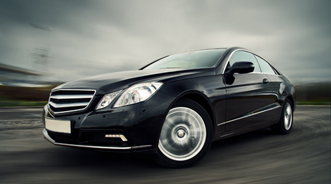Survey Examines Reasons for Softening Luxury Model Demand

By subscribing, you agree to receive communications from Auto Remarketing and our partners in accordance with our Privacy Policy. We may share your information with select partners and sponsors who may contact you about their products and services. You may unsubscribe at any time.
NEW YORK –
Almost one in three luxury vehicle owners have a more negative attitude toward purchasing another luxury model, a recent survey by global research firm TNS confirmed.
Why are these owners so cautious? Along with changing brand and performance perceptions, TNS found that with the unknown future of the European debt crisis, continued economic concerns throughout the U.S. and the potential of slower growth in global auto supplier markets, consumers’ fears are building concerns that past sales growth could wane.
Among luxury vehicle owners whose attitude toward the segment has been negatively impacted, TNS indicated the most common reason cited focuses on the current and future affordability of ownership (74 percent), with insurance and maintenance (43 percent) also being cited as a pivotal concern for future purchase.
“Clearly the high visibility of the recent debt crisis and the ensuing mayhem in the financial markets is causing negative sentiment toward the luxury vehicle segment,” explained William Bruno, TNS vice president.
“What is most telling is the similar level of negative attitudes expressed by a large portion of existing luxury vehicle owners, as well as non-owners who aspire to own luxury vehicles,” Bruno continued.
TNS thinks it’s more than an emotional connection: Perceptions may not equate with reality.
Subscribe to Auto Remarketing to stay informed and stay ahead.
By subscribing, you agree to receive communications from Auto Remarketing and our partners in accordance with our Privacy Policy. We may share your information with select partners and sponsors who may contact you about their products and services. You may unsubscribe at any time.
According to the survey, 19 percent of luxury owners showing negative attitudes cited the lack of fuel economy in most luxury brands as being the reason they were shifting away from a future purchase.
“The high focus on fuel economy is surprising to us, because according to our research, many luxury brands offer competitive gas mileage when compared to similarly equipped, non-luxury, midsized vehicles,” Bruno surmised.
“The overall perceptions aren’t matching up with reality, and this is great opportunity for marketers and manufacturers to continue demonstrating the real economics associated with luxury brands,” he added.
Based on the results of TNS’ recent study, this strong reliance on perception is only likely to grow as 13 percent of respondents cite an inappropriate or “out-of-tune” image as being the main reason for steering clear of buying a luxury brand vehicle.
“The consumer mindset has changed,” Bruno declared. “While car manufacturers may have historically reached potential consumers by meeting the emotional needs and lifestyle desires of their consumers, basic performance measures are making a stronger impact on future purchase decisions.
“Manufacturers will need to continue reinforcing their economic and functional product advantages in the minds of consumers,” he concluded.


